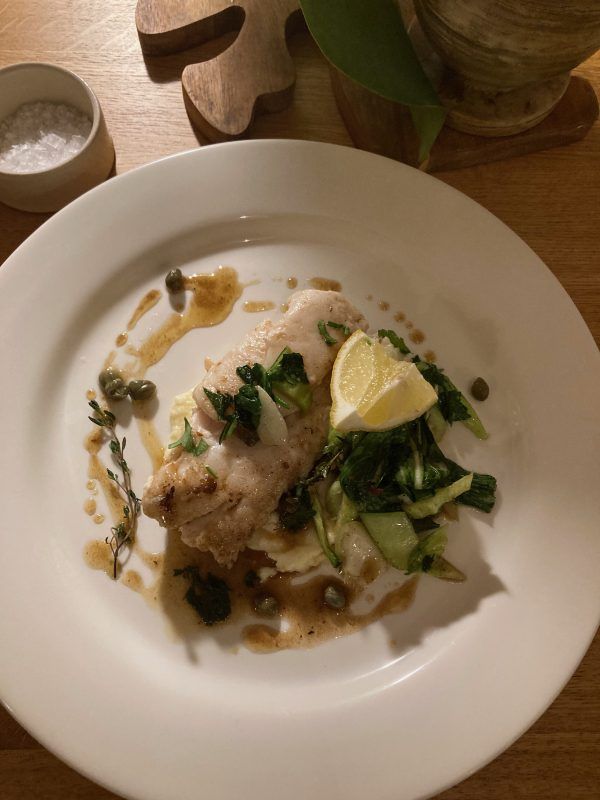Christmas dinner with a sustainable twist: Food Smart Dublin team recreates three historical seafood dishes
Posted on: 21 December 2020
Researchers from Trinity College Dublin’s Centre for the Environmental Humanities (TCEH) have concocted a delicious Christmas menu with a twist: instead of turkey and stuffing, they have put sustainably caught seafood in the spotlight.
The researchers, funded by the Irish Research Council under the COALESCE scheme to deliver the Food Smart Dublin project, have been working with talented chefs over the past six months to recreate seasonal dishes from long-forgotten, centuries-old recipes that are both delicious and environmentally responsible.
This month they have created not one but three pescatarian options for Christmas.
The Christmas menu
Getting ready for Christmas, the Food Smart Dublin team has teamed up with Brian Topping, MasterChef Ireland finalist, and talented Cork chef, Ciara Ní Cheallacháin.



More details on the recipes, sustainability, and story of the seafood used in the menus is available on the project’s website here.
Dr Agnese Cretella, from TCEH and Food Smart Dublin, said:
“Our project aims to promote sustainable seafood consumption while simultaneously building on Irish coastal cultural heritage and engaging with innovative chefs and educationalists. The three festive dishes this month contrast with the usual opulence of a traditional Christmas meal, and we hope lots of people give it a go.”
Dr Cordula Scherer, from TCEH and Food Smart Dublin, added:
“We want to encourage sustainable, local, seafood consumption by bringing back to life Irish food heritage via reimagined recipes – some of which are hundreds of years old. We feel this is even more important now as COVID-19 has forced us to rethink the sustainability of our food systems in fresh ways.”
The recent experience of chef Brian Topping, who challenged himself to modernise Maria Rundell’s 1807 herring-based recipe when creating the side dish, underlines the importance of shaking up our seafood consumption practices. He said:
”It was quite a challenge trying to get fresh fish for this dish as I couldn’t get any herring, sardines or mackerel in Dublin, even at the wet counters in Howth. In the end I settled on using an Irish oak-smoked mackerel fillet as a substitute. It’s really interesting speaking to fishmongers that there is very poor demand for these fish nowadays, and they don’t sell when they bring them in.”
Get involved and win
The Food Smart Dublin team calls on the public to cook these recipes and leave their feedback via a short online questionnaire to help with their ongoing research.
Participants who buy their seafood for the Food Smart Dublin recipes from the project’s official partner – Sustainable Seafood Ireland – will get a 10% discount.
Furthermore, the team runs a best photo/post competition with the chance to win a €20 voucher worth of seafood to be redeemed at Sustainable Seafood Ireland.
To take part participants simply upload their photos and/or posts and on Twitter, Instagram or Facebook and tag @foodsmartdublin.
